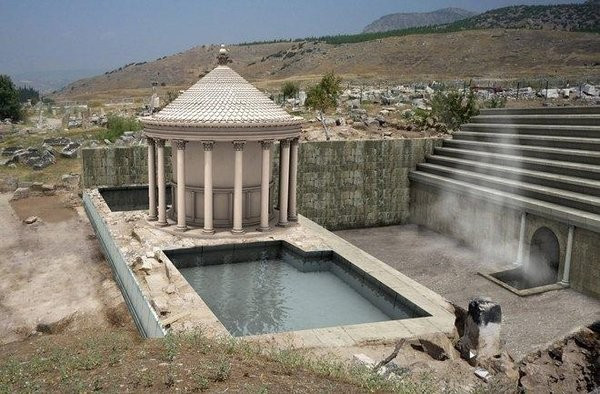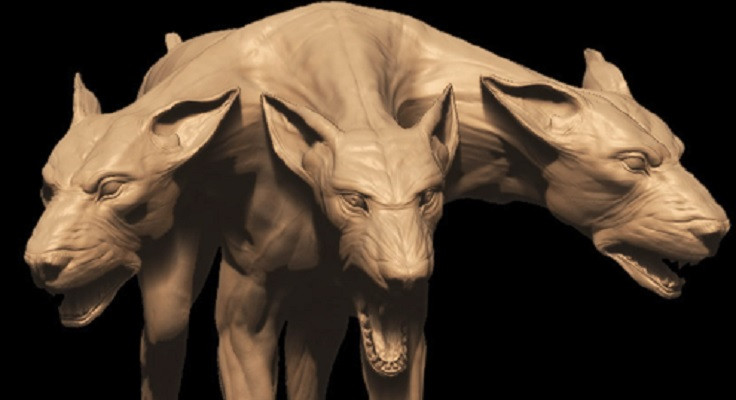Gates of Hell Spew Out Three-Headed Guard of the Underworld

Just under a year after archaeologists discovered the Gateway to Hell in Turkey, the guards to the underworld have started to emerge.
Pluto's Gate, or the gates of hell, was unearthed during an archaeological dig led by the University of Palermo in April this year.
The gateway to hell was discovered inside the ruins of a temple during a dig in the city of Pamukkale, which was known during Roman times as Hierapolis.
The cave acted as a place of worship where animals were sacrificed to the god Pluto, the guardian of the underworld. Over centuries, it gained a notorious reputation because of the mephitic carbon dioxide fumes that spewed from its mouth.
Excavation leader Francesco D'Andria said: "People could watch the sacred rites from these steps, but they could not get to the area near the opening. Only the priests could stand in front of the portal.
"We could see the cave's lethal properties during the excavation. Several birds died as they tried to get close to the warm opening, instantly killed by the fumes."
Now, eight months later, archaeologists say two guards of hell have emerged from the cave.

According to news.com.au, two marble statues that used to warn people away from the cave have been discovered.
One is a coiled snake that would stare down anyone who dared approach, while the other is a four foot tall, three-headed watchdog of Hell, known as Cerberus.
D'Andria told Discovery News: "It's a pretty scary statue. The statues represent two mythological creatures. One depicts a snake, a clear symbol of the underworld, the other shows Kerberos, or Cerberus, the three-headed watchdog of hell in the Greek mythology."
The statues have been defaced, the archaeologists said, adding that this was probably done by Christian pilgrims.
As well as the guardians of hell, the researchers have also discovered the healing thermal springs Pamukkale is known to originate from 'hell'.
"Pamukkale's springs originate right from this cave," D'Andria said.
© Copyright IBTimes 2025. All rights reserved.






















